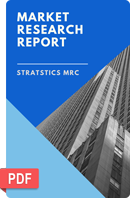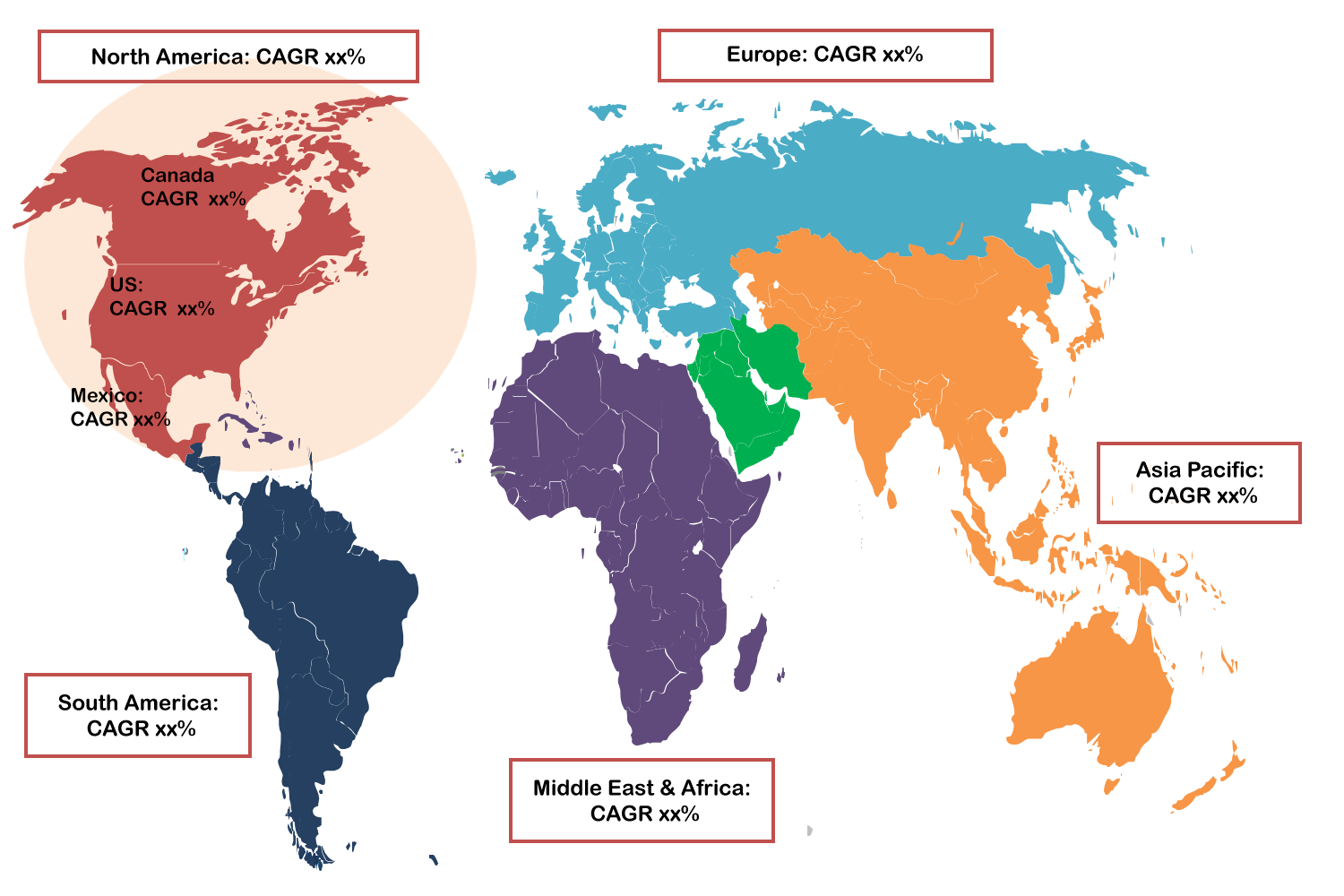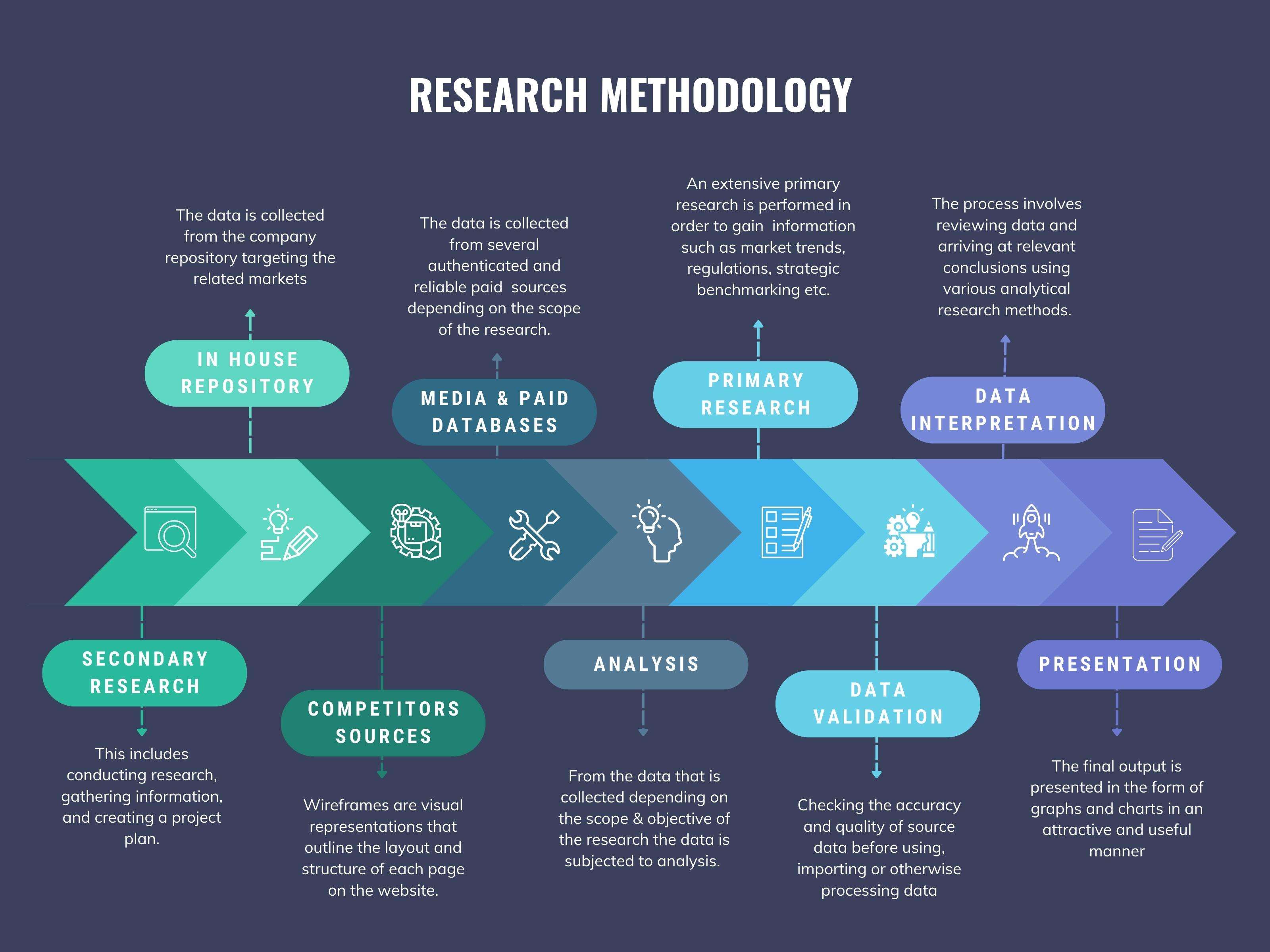
Alternative Protein Market
Alternative Protein Market Forecasts to 2032 - Global Analysis By Source (Plant-Based, Mycoprotein, Algal Protein, Insect Protein, and Microbial/Fermentation-Based Proteins), Form, Nature, Application and By Geography

|
Years Covered |
2024-2032 |
|
Estimated Year Value (2025) |
US $20.09 BN |
|
Projected Year Value (2032) |
US $43.86 BN |
|
CAGR (2025-2032) |
11.8% |
|
Regions Covered |
North America, Europe, Asia Pacific, South America, and Middle East & Africa |
|
Countries Covered |
US, Canada, Mexico, Germany, UK, Italy, France, Spain, Japan, China, India, Australia, New Zealand, South Korea, Rest of Asia Pacific, South America, Argentina, Brazil, Chile, Middle East & Africa, Saudi Arabia, UAE, Qatar, and South Africa |
|
Largest Market |
Asia Pacific |
|
Highest Growing Market |
North America |
According to Stratistics MRC, the Global Alternative Protein Market is accounted for $20.09 billion in 2025 and is expected to reach $43.86 billion by 2032 growing at a CAGR of 11.8% during the forecast period.Alternative protein refers to protein sources derived from non-traditional means such as plants, insects, fungi, or cultured animal cells. These proteins offer sustainable, ethical, and often healthier alternatives to conventional animal-based proteins. They are used in various food products, including meat and dairy analogs, to meet the growing demand for environmentally friendly and cruelty-free nutrition while reducing the environmental impact of traditional livestock farming.

Market Dynamics:
Driver:
Increasing health consciousness
Consumers are increasingly seeking nutritious, low-fat, and cholesterol-free protein options to support healthier lifestyles. This shift is particularly evident among individuals managing chronic conditions such as obesity, diabetes, and cardiovascular diseases. Alternative proteins, especially plant-based and algae-derived sources, are perceived as cleaner and more sustainable compared to traditional animal proteins. The rise in fitness culture and preventive healthcare is further fuelling demand for high-protein, functional foods. As a result, health-conscious consumers are propelling the expansion of the alternative protein market.
Restraint:
Limited consumer awareness and acceptance
Despite growing interest, limited consumer awareness and skepticism remain significant barriers to widespread adoption of alternative proteins. Many consumers are unfamiliar with the nutritional value, safety, and taste of novel protein sources such as insect or microbial proteins. Cultural preferences and dietary habits also influence acceptance, particularly in regions with strong meat-based culinary traditions. Misinformation and lack of education about production methods can lead to hesitation and resistance. Additionally, the perception that alternative proteins are overly processed or synthetic can deter health-focused buyers.
Opportunity:
Growth in vegan and flexitarian lifestyles
Consumers are increasingly reducing meat consumption for ethical, environmental, and health reasons. This shift is driving demand for innovative, plant-based, and cell-cultured protein products that mimic the taste and texture of meat. Food manufacturers are responding with a wide range of offerings, from meat analogs to dairy-free alternatives. The growing availability of these products in mainstream retail channels is accelerating market penetration. As more consumers embrace plant-forward diets, the alternative protein market is poised for robust expansion.
Threat:
Limited shelf life or stability
Many plant-based and algae-derived proteins are sensitive to temperature, moisture, and light, which can affect their nutritional quality and safety. This poses challenges for storage, transportation, and retail distribution, especially in regions with underdeveloped cold chain infrastructure. Additionally, maintaining product freshness without artificial preservatives is a concern for clean-label brands. These limitations can lead to increased food waste and reduced consumer satisfaction.
Covid-19 Impact
The COVID-19 pandemic significantly influenced consumer behavior and supply chain dynamics in the alternative protein market. Disruptions in traditional meat supply chains highlighted the need for resilient and sustainable protein sources. Consumers became more health-conscious, seeking immune-boosting and plant-based foods during lockdowns. This led to a surge in demand for alternative proteins, particularly in e-commerce and direct-to-consumer channels. However, the pandemic also posed challenges in production, logistics, and ingredient sourcing.
The algal protein segment is expected to be the largest during the forecast period
The algal protein segment is expected to account for the largest market share during the forecast period, due to its superior nutritional profile and sustainability. Algae such as spirulina and chlorella are rich in essential amino acids, vitamins, and antioxidants, making them ideal for functional foods and supplements. Their cultivation requires minimal land, water, and energy, aligning with global sustainability goals. Technological advancements in algae harvesting and processing are enhancing product quality and scalability.
The clinical nutrition segment is expected to have the highest CAGR during the forecast period
Over the forecast period, the clinical nutrition segment is predicted to witness the highest growth rate, due toincreasing demand for specialized dietary solutions. Alternative proteins are being incorporated into medical nutrition products for patients with specific health conditions or dietary restrictions. Hospitals and healthcare providers are adopting plant-based and algae-derived proteins in enteral and parenteral nutrition. The aging population and rising prevalence of chronic diseases are further driving demand for clinical nutrition.
Region with largest share:
During the forecast period, the Asia Pacific region is expected to hold the largest market sharedue toits large population base and evolving dietary preferences. Countries like China, India, and Japan are witnessing a surge in demand for sustainable and plant-based protein sources. Traditional familiarity with soy, tofu, and other plant proteins supports market acceptance. Government initiatives promoting food security and environmental sustainability are also encouraging investment in alternative protein technologies.
Region with highest CAGR:
Over the forecast period, the North America region is anticipated to exhibit the highest CAGR, owing to its advanced food technology ecosystem and strong consumer demand. The U.S. and Canada are home to leading alternative protein start-ups and research institutions. Consumers in the region are highly receptive to plant-based, cultured, and fermented protein innovations. Retailers and foodservice providers are expanding their alternative protein offerings to meet growing demand.

Key players in the market
Some of the key players profiled in the Alternative Protein Market include Archer Daniels Midland (ADM), Axiom Foods Inc., Cargill Inc., SunOpta Inc., International Flavors& Fragrances (IFF), AGT Food and Ingredients, Ingredion Inc., Beyond Meat, Kerry Group, Impossible Foods Inc., Roquette Frères, Emsland Group, Tate & Lyle PLC, Bunge Limited, and Glanbia plc.
Key Developments:
In June 2025, Cargill is further strengthening its presence in Mindanao, with a new feed production partnership with Biotech, a state-of-the-art facility located at the Biotech Agro-Industrial Complex in Tantangan, South Cotabato. This strategic collaboration reflects Cargill’s continued investment in one of the country’s most vital agricultural regions, aimed at delivering faster, more reliable, and high-quality feed solutions to better serve customers.
In March 2025, ADM and Mitsubishi Corporation are pleased to announce that both companies have signed a non-binding memorandum of understanding to form a strategic alliance to explore potential areas of future collaboration across the agriculture value chain.
Sources Covered:
• Plant-Based
• Mycoprotein
• Algal Protein
• Insect Protein
• Microbial/Fermentation-Based Proteins
Forms Covered:
• Isolates
• Concentrates
• Textured Proteins
• Powder
• Liquid
• Other Forms
Natures Covered:
• Conventional
• Organic
Applications Covered:
• Food and Beverages
• Dietary Supplements
• Animal Feed and Pet Food
• Personal Care and Cosmetics
• Infant Formulations
• Clinical Nutrition
• Other Applications
Regions Covered:
• North America
o US
o Canada
o Mexico
• Europe
o Germany
o UK
o Italy
o France
o Spain
o Rest of Europe
• Asia Pacific
o Japan
o China
o India
o Australia
o New Zealand
o South Korea
o Rest of Asia Pacific
• South America
o Argentina
o Brazil
o Chile
o Rest of South America
• Middle East & Africa
o Saudi Arabia
o UAE
o Qatar
o South Africa
o Rest of Middle East & Africa
What our report offers:
- Market share assessments for the regional and country-level segments
- Strategic recommendations for the new entrants
- Covers Market data for the years 2024, 2025, 2026, 2028, and 2032
- Market Trends (Drivers, Constraints, Opportunities, Threats, Challenges, Investment Opportunities, and recommendations)
- Strategic recommendations in key business segments based on the market estimations
- Competitive landscaping mapping the key common trends
- Company profiling with detailed strategies, financials, and recent developments
- Supply chain trends mapping the latest technological advancements
Free Customization Offerings:
All the customers of this report will be entitled to receive one of the following free customization options:
• Company Profiling
o Comprehensive profiling of additional market players (up to 3)
o SWOT Analysis of key players (up to 3)
• Regional Segmentation
o Market estimations, Forecasts and CAGR of any prominent country as per the client's interest (Note: Depends on feasibility check)
• Competitive Benchmarking
o Benchmarking of key players based on product portfolio, geographical presence, and strategic alliances
Table of Contents
1 Executive Summary
2 Preface
2.1 Abstract
2.2 Stake Holders
2.3 Research Scope
2.4 Research Methodology
2.4.1 Data Mining
2.4.2 Data Analysis
2.4.3 Data Validation
2.4.4 Research Approach
2.5 Research Sources
2.5.1 Primary Research Sources
2.5.2 Secondary Research Sources
2.5.3 Assumptions
3 Market Trend Analysis
3.1 Introduction
3.2 Drivers
3.3 Restraints
3.4 Opportunities
3.5 Threats
3.6 Application Analysis
3.7 Emerging Markets
3.8 Impact of Covid-19
4 Porters Five Force Analysis
4.1 Bargaining power of suppliers
4.2 Bargaining power of buyers
4.3 Threat of substitutes
4.4 Threat of new entrants
4.5 Competitive rivalry
5 Global Alternative Protein Market, By Source
5.1 Introduction
5.2 Plant-Based
5.2.1 Soy Protein
5.2.2 Pea Protein
5.2.3 Wheat Protein
5.2.4 Rice Protein
5.2.5 Chickpeas
5.3 Mycoprotein
5.4 Algal Protein
5.5 Insect Protein
5.6 Microbial/Fermentation-Based Proteins
5.6.1 Yeast
5.6.2 Bacteria
5.6.3 Fungi
5.6.4 Cell-Based Proteins
6 Global Alternative Protein Market, By Form
6.1 Introduction
6.2 Isolates
6.3 Concentrates
6.4 Textured Proteins
6.5 Powder
6.6 Liquid
6.7 Other Forms
7 Global Alternative Protein Market, By Nature
7.1 Introduction
7.2 Conventional
7.3 Organic
8 Global Alternative Protein Market, By Application
8.1 Introduction
8.2 Food and Beverages
8.2.1 Meat Alternatives
8.2.2 Dairy Alternatives
8.2.3 Baked Goods & Confectionery
8.2.4 Beverages
8.3 Dietary Supplements
8.4 Animal Feed and Pet Food
8.5 Personal Care and Cosmetics
8.6 Infant Formulations
8.7 Clinical Nutrition
8.8 Other Applications
9 Global Alternative Protein Market, By Geography
9.1 Introduction
9.2 North America
9.2.1 US
9.2.2 Canada
9.2.3 Mexico
9.3 Europe
9.3.1 Germany
9.3.2 UK
9.3.3 Italy
9.3.4 France
9.3.5 Spain
9.3.6 Rest of Europe
9.4 Asia Pacific
9.4.1 Japan
9.4.2 China
9.4.3 India
9.4.4 Australia
9.4.5 New Zealand
9.4.6 South Korea
9.4.7 Rest of Asia Pacific
9.5 South America
9.5.1 Argentina
9.5.2 Brazil
9.5.3 Chile
9.5.4 Rest of South America
9.6 Middle East & Africa
9.6.1 Saudi Arabia
9.6.2 UAE
9.6.3 Qatar
9.6.4 South Africa
9.6.5 Rest of Middle East & Africa
10 Key Developments
10.1 Agreements, Partnerships, Collaborations and Joint Ventures
10.2 Acquisitions & Mergers
10.3 New Product Launch
10.4 Expansions
10.5 Other Key Strategies
11 Company Profiling
11.1 Archer Daniels Midland (ADM)
11.2 Axiom Foods Inc.
11.3 Cargill Inc.
11.4 SunOpta Inc.
11.5 International Flavors & Fragrances (IFF)
11.6 AGT Food and Ingredients
11.7 Ingredion Inc.
11.8 Beyond Meat
11.9 Kerry Group
11.10 Impossible Foods Inc.
11.11 Roquette Frères
11.12 Emsland Group
11.13 Tate & Lyle PLC
11.14 Bunge Limited
11.15 Glanbia plc
List of Tables
1 Global Alternative Protein Market Outlook, By Region (2024-2032) ($MN)
2 Global Alternative Protein Market Outlook, By Source (2024-2032) ($MN)
3 Global Alternative Protein Market Outlook, By Plant-Based (2024-2032) ($MN)
4 Global Alternative Protein Market Outlook, By Soy Protein (2024-2032) ($MN)
5 Global Alternative Protein Market Outlook, By Pea Protein (2024-2032) ($MN)
6 Global Alternative Protein Market Outlook, By Wheat Protein (2024-2032) ($MN)
7 Global Alternative Protein Market Outlook, By Rice Protein (2024-2032) ($MN)
8 Global Alternative Protein Market Outlook, By Chickpeas (2024-2032) ($MN)
9 Global Alternative Protein Market Outlook, By Mycoprotein (2024-2032) ($MN)
10 Global Alternative Protein Market Outlook, By Algal Protein (2024-2032) ($MN)
11 Global Alternative Protein Market Outlook, By Insect Protein (2024-2032) ($MN)
12 Global Alternative Protein Market Outlook, By Microbial/Fermentation-Based Proteins (2024-2032) ($MN)
13 Global Alternative Protein Market Outlook, By Yeast (2024-2032) ($MN)
14 Global Alternative Protein Market Outlook, By Bacteria (2024-2032) ($MN)
15 Global Alternative Protein Market Outlook, By Fungi (2024-2032) ($MN)
16 Global Alternative Protein Market Outlook, By Cell-Based Proteins (2024-2032) ($MN)
17 Global Alternative Protein Market Outlook, By Form (2024-2032) ($MN)
18 Global Alternative Protein Market Outlook, By Isolates (2024-2032) ($MN)
19 Global Alternative Protein Market Outlook, By Concentrates (2024-2032) ($MN)
20 Global Alternative Protein Market Outlook, By Textured Proteins (2024-2032) ($MN)
21 Global Alternative Protein Market Outlook, By Powder (2024-2032) ($MN)
22 Global Alternative Protein Market Outlook, By Liquid (2024-2032) ($MN)
23 Global Alternative Protein Market Outlook, By Other Forms (2024-2032) ($MN)
24 Global Alternative Protein Market Outlook, By Nature (2024-2032) ($MN)
25 Global Alternative Protein Market Outlook, By Conventional (2024-2032) ($MN)
26 Global Alternative Protein Market Outlook, By Organic (2024-2032) ($MN)
27 Global Alternative Protein Market Outlook, By Application (2024-2032) ($MN)
28 Global Alternative Protein Market Outlook, By Food and Beverages (2024-2032) ($MN)
29 Global Alternative Protein Market Outlook, By Meat Alternatives (2024-2032) ($MN)
30 Global Alternative Protein Market Outlook, By Dairy Alternatives (2024-2032) ($MN)
31 Global Alternative Protein Market Outlook, By Baked Goods & Confectionery (2024-2032) ($MN)
32 Global Alternative Protein Market Outlook, By Beverages (2024-2032) ($MN)
33 Global Alternative Protein Market Outlook, By Dietary Supplements (2024-2032) ($MN)
34 Global Alternative Protein Market Outlook, By Animal Feed and Pet Food (2024-2032) ($MN)
35 Global Alternative Protein Market Outlook, By Personal Care and Cosmetics (2024-2032) ($MN)
36 Global Alternative Protein Market Outlook, By Infant Formulations (2024-2032) ($MN)
37 Global Alternative Protein Market Outlook, By Clinical Nutrition (2024-2032) ($MN)
38 Global Alternative Protein Market Outlook, By Other Applications (2024-2032) ($MN)
Note: Tables for North America, Europe, APAC, South America, and Middle East & Africa Regions are also represented in the same manner as above.
List of Figures
RESEARCH METHODOLOGY

We at ‘Stratistics’ opt for an extensive research approach which involves data mining, data validation, and data analysis. The various research sources include in-house repository, secondary research, competitor’s sources, social media research, client internal data, and primary research.
Our team of analysts prefers the most reliable and authenticated data sources in order to perform the comprehensive literature search. With access to most of the authenticated data bases our team highly considers the best mix of information through various sources to obtain extensive and accurate analysis.
Each report takes an average time of a month and a team of 4 industry analysts. The time may vary depending on the scope and data availability of the desired market report. The various parameters used in the market assessment are standardized in order to enhance the data accuracy.
Data Mining
The data is collected from several authenticated, reliable, paid and unpaid sources and is filtered depending on the scope & objective of the research. Our reports repository acts as an added advantage in this procedure. Data gathering from the raw material suppliers, distributors and the manufacturers is performed on a regular basis, this helps in the comprehensive understanding of the products value chain. Apart from the above mentioned sources the data is also collected from the industry consultants to ensure the objective of the study is in the right direction.
Market trends such as technological advancements, regulatory affairs, market dynamics (Drivers, Restraints, Opportunities and Challenges) are obtained from scientific journals, market related national & international associations and organizations.
Data Analysis
From the data that is collected depending on the scope & objective of the research the data is subjected for the analysis. The critical steps that we follow for the data analysis include:
- Product Lifecycle Analysis
- Competitor analysis
- Risk analysis
- Porters Analysis
- PESTEL Analysis
- SWOT Analysis
The data engineering is performed by the core industry experts considering both the Marketing Mix Modeling and the Demand Forecasting. The marketing mix modeling makes use of multiple-regression techniques to predict the optimal mix of marketing variables. Regression factor is based on a number of variables and how they relate to an outcome such as sales or profits.
Data Validation
The data validation is performed by the exhaustive primary research from the expert interviews. This includes telephonic interviews, focus groups, face to face interviews, and questionnaires to validate our research from all aspects. The industry experts we approach come from the leading firms, involved in the supply chain ranging from the suppliers, distributors to the manufacturers and consumers so as to ensure an unbiased analysis.
We are in touch with more than 15,000 industry experts with the right mix of consultants, CEO's, presidents, vice presidents, managers, experts from both supply side and demand side, executives and so on.
The data validation involves the primary research from the industry experts belonging to:
- Leading Companies
- Suppliers & Distributors
- Manufacturers
- Consumers
- Industry/Strategic Consultants
Apart from the data validation the primary research also helps in performing the fill gap research, i.e. providing solutions for the unmet needs of the research which helps in enhancing the reports quality.
For more details about research methodology, kindly write to us at info@strategymrc.com
Frequently Asked Questions
In case of any queries regarding this report, you can contact the customer service by filing the “Inquiry Before Buy” form available on the right hand side. You may also contact us through email: info@strategymrc.com or phone: +1-301-202-5929
Yes, the samples are available for all the published reports. You can request them by filling the “Request Sample” option available in this page.
Yes, you can request a sample with your specific requirements. All the customized samples will be provided as per the requirement with the real data masked.
All our reports are available in Digital PDF format. In case if you require them in any other formats, such as PPT, Excel etc you can submit a request through “Inquiry Before Buy” form available on the right hand side. You may also contact us through email: info@strategymrc.com or phone: +1-301-202-5929
We offer a free 15% customization with every purchase. This requirement can be fulfilled for both pre and post sale. You may send your customization requirements through email at info@strategymrc.com or call us on +1-301-202-5929.
We have 3 different licensing options available in electronic format.
- Single User Licence: Allows one person, typically the buyer, to have access to the ordered product. The ordered product cannot be distributed to anyone else.
- 2-5 User Licence: Allows the ordered product to be shared among a maximum of 5 people within your organisation.
- Corporate License: Allows the product to be shared among all employees of your organisation regardless of their geographical location.
All our reports are typically be emailed to you as an attachment.
To order any available report you need to register on our website. The payment can be made either through CCAvenue or PayPal payments gateways which accept all international cards.
We extend our support to 6 months post sale. A post sale customization is also provided to cover your unmet needs in the report.
Request Customization
We offer complimentary customization of up to 15% with every purchase. To share your customization requirements, feel free to email us at info@strategymrc.com or call us on +1-301-202-5929. .
Please Note: Customization within the 15% threshold is entirely free of charge. If your request exceeds this limit, we will conduct a feasibility assessment. Following that, a detailed quote and timeline will be provided.
WHY CHOOSE US ?

Assured Quality
Best in class reports with high standard of research integrity

24X7 Research Support
Continuous support to ensure the best customer experience.

Free Customization
Adding more values to your product of interest.

Safe & Secure Access
Providing a secured environment for all online transactions.

Trusted by 600+ Brands
Serving the most reputed brands across the world.
